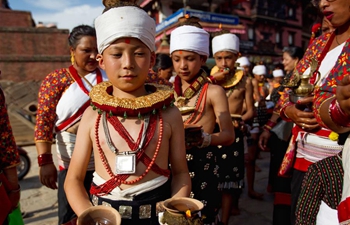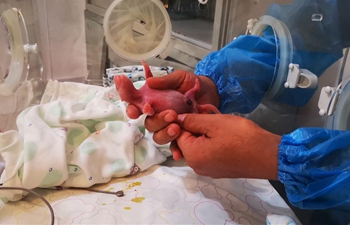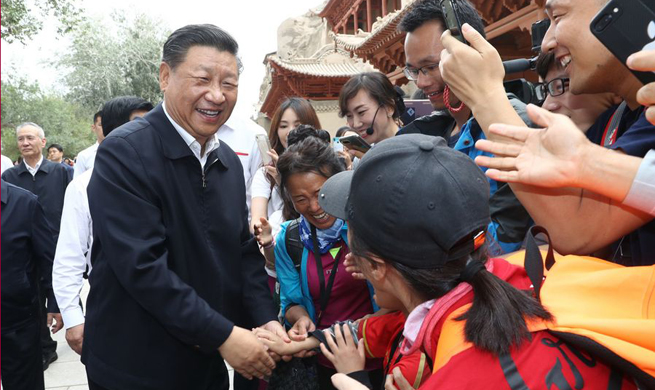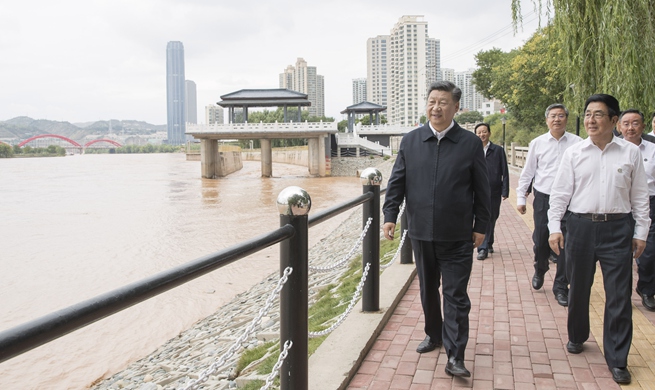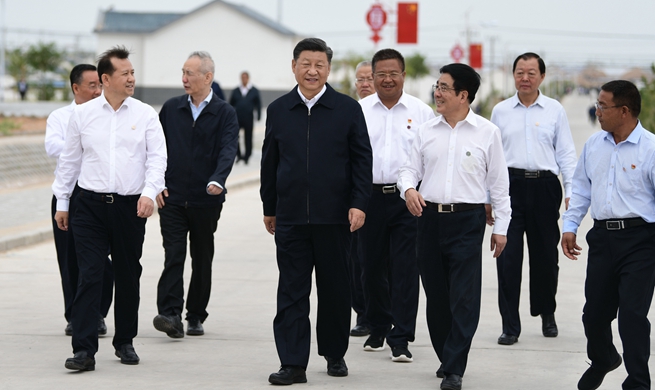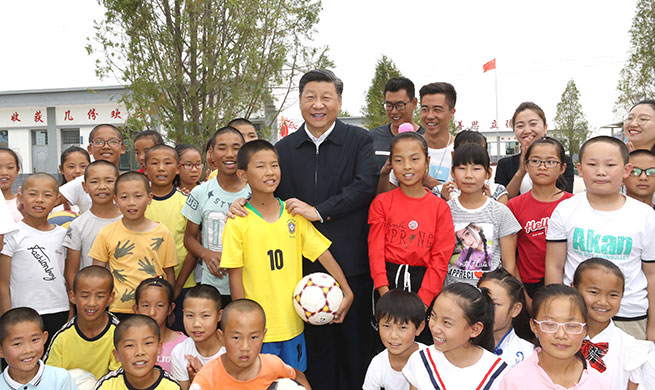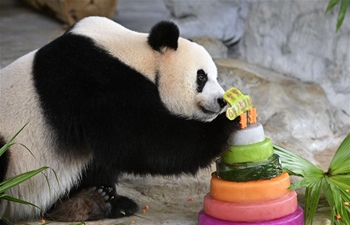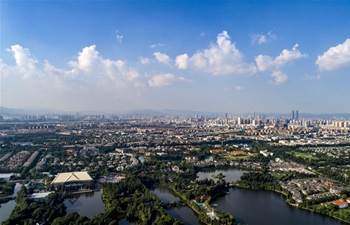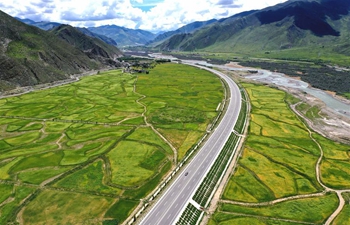YINCHUAN, Aug. 23 (Xinhua) -- In 1981, British filmmaker Malcolm Clarke set his feet on the Chinese soil for the first time and was shocked by the country's economic backwardness.
About 40 years later, when the two-time Oscar winner revisited China to make a documentary called "Better Angels," he was greatly impressed by the sea change that has taken place in the country and found that he can never truly understand today's China unless he travels around the world.
"China has transformed so quickly and profoundly... China is no longer a middle kingdom bound by its borders. It is now an influential global power," Clarke said when sharing his experience of making "Better Angels" at a recent academic seminar held in northwest China's Ningxia Hui Autonomous Region.
"To really make a film about contemporary China, we have to shoot all over the world," he said.
Recalling his first visit to China in the early 1980s, Clarke said what first came into his mind is the endless farmlands spotted with small shabby houses.
To make a documentary about Chinese history during his nine-month trip, Clarke lived with Chinese farmers in their village houses for several days and even spent some nights on black-awning boats, which were commonly seen in eastern China's water towns.
Clarke said at that time China was a rather backward country. "However, diligent Chinese farmers could be seen everywhere. They lived in hard existence, but were very optimistic about the future."
He believed then that China would rise again on the back of its people's optimism.
It happened, and it was far beyond his imagination.
When Clarke came to China in 2013 to shoot "Better Angels," he discovered that China had transformed into an industrial powerhouse boasting state-of-the-art technologies. The country is now the world's second-largest economy.
Clarke said he made "Better Angels" with the aim of helping people in the West better understand contemporary China.
The documentary tells the story of a young man from a remote and impoverished village in southwest China who has been working in Ethiopia for three years to support his family. He can only contact his wife and two-year-old son via an unstable internet connection.
The film moved many audiences to tears when it was screened in Muscatine, a city in the U.S. midwestern state of Iowa, according to Clarke.
"Maybe people in the West don't understand what 'the world's second-largest economy' means, but they do know what it feels like when a father misses his son," Clarke said.
"Nowadays, many young Chinese parents work far away from their hometowns... These sacrifices are made for creating a brighter future for the next generation. It is admirable," he added.
Clark also pointed out that China's development has benefited the world, as Chinese multinational companies are creating many job opportunities for people in other countries and regions. "China is definitely no 'job-stealer'," he said.
In "Better Angels," an unemployed American housewife landed a job at a Chinese multinational company and regained her faith in life.
"Such kind of stories are not rare in real life," Clarke said.




